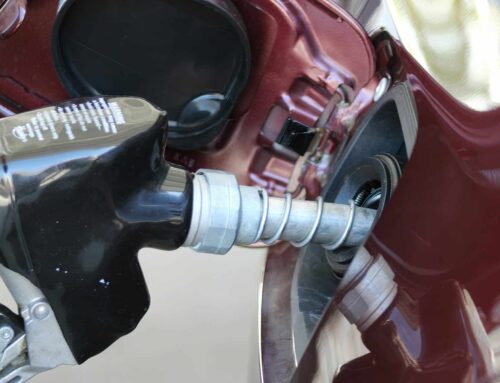For years, big agribusiness has eagerly pushed corn ethanol as an alternative to oil. The trouble is, ethanol doesn’t really work as a fuel substitute. It’s not cheaper, it doesn’t burn cleaner, and it doesn’t pack as much energy content as gasoline does. In fact, all it really seems to do is line the pockets of some of America’s biggest corporations.
After realizing that they couldn’t compete in the open marketplace with petroleum, the ethanol folks got a bright idea: by handing out heaps of campaign cash, they could cozy up to Congress and get lawmakers to solve all their problems. Their master plan has paid off. The federal government injects more subsidies into ethanol than Jose Canseco pumps steroids into his left arm. Between the ethanol mandate, the 51-cent per gallon tax incentive, and the huge host of handouts and tax breaks for producers, the ethanol industry is riding high. Ethanol producers don’t need to compete with gasoline to take in huge profits; they can still haul home truckloads of cash so long as Congress remains their sugar daddy. But while corporate agriculture is getting drunk off of ethanol subsidies, taxpayers are getting stuck with a nasty hangover.
Sky-high gasoline prices and the energy bill have given lawmakers an opportunity to pile on even more giveaways for ethanol. The energy bill that the Senate passed on Tuesday pours more than $2 billion in loan guarantees, demonstration projects, and downright handouts to ethanol interests. All this is just good old-fashioned pork dressed up as energy policy.
But while Congress is busy giving big agribusiness the keys to the Treasury, scientists are increasingly finding that corn ethanol is no solution to America’s energy woes.
Dr. Tad Patzek, a geoengineer at UC Berkeley, examined the full process of corn-based ethanol production, from seed to tank, and found in a recent report that every unit of energy created through corn ethanol takes six units of energy to produce. Dr. David Pimentel, a professor at Cornell University engaged in similar research, has also demonstrated that corn-based ethanol demands significantly more energy to create than it contains. These two studies make painfully clear what opponents of ethanol have been saying for a long time: corn ethanol is an outrageously inefficient substitute for gasoline.
The ethanol boondoggle began in the 1970s as an attempt to cut back American reliance upon foreign oil. More than thirty years later, after billions and billions spent in research and development, ethanol remains commercially unsustainable, depending on taxpayer handouts and government mandates to survive – and it’s still not a viable substitute for gasoline. It's time to wean ethanol off the federal bottle and give taxpayers relief.
Special thanks to summer intern Billy Goodwin for his work on this Wastebasket.










